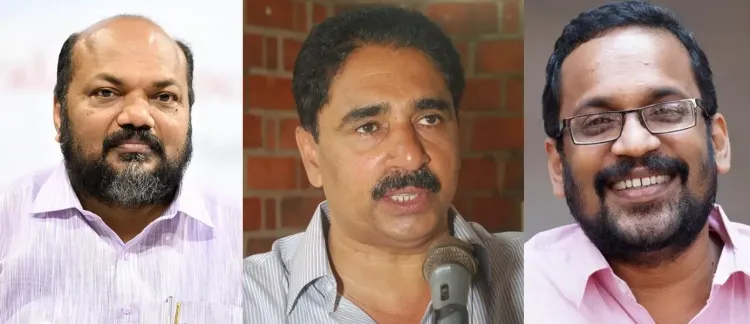Political Factions in Kerala Celebrate SC Ruling on Governor's Bill Authority

Synopsis
Key Takeaways
- The Supreme Court ruled against the Tamil Nadu Governor's inaction on 10 Bills.
- Political consensus emerged among Kerala's rival parties regarding the ruling.
- Delays in assent from Governors have previously hindered legislative processes.
- The ruling affirms the democratic rights of state legislatures.
- It restricts the duration a Governor can hold Bills to three months.
Thiruvananthapuram, April 8 (NationPress) The Supreme Court’s decision on Tuesday, deeming Tamil Nadu Governor Dr R.N. Ravi's refusal to assent to 10 Bills as “illegal”, garnered uncommon agreement from historical political adversaries in Kerala.
The highest court ruled that the 10 Bills, re-passed by the Tamil Nadu Assembly and resubmitted to the Governor, are considered as having received his assent — a decision that resonates deeply in Kerala, where comparable concerns have been brewing.
In Kerala, the CPI(M)-led Left Democratic Front (LDF) currently holds power, while the Congress-led United Democratic Front (UDF) is in opposition. The BJP, although a minor player in the 140-member state Assembly, maintains a presence in the Lok Sabha from the Thrissur constituency, represented by Minister of State for Tourism Suresh Gopi.
Expressing support for the Supreme Court’s ruling, Kerala Law Minister P. Rajeeve recalled how former Kerala Governor Arif Mohammed Khan had postponed action on multiple Bills — some left pending for as long as 23 months.
“There were Bills that lingered with the Governor for 13, 16, even 18 months. We publicly stated that such delays were undemocratic. The Governor should act in accordance with the advice of the elected government,” Rajeeve asserted.
He further noted, “The Supreme Court has clarified that no Governor may retain Bills for over three months. Additionally, not all Bills can be referred to the President. This ruling is a definitive endorsement of democratic principles.”
State Revenue Minister K. Rajan remarked that the Supreme Court ruling should be embraced “with great joy.” “Governors can no longer be wielded as instruments by the Centre to hinder state governments. This verdict delivers a powerful message regarding the conduct of the Tamil Nadu Governor,” Rajan stated.
Senior UDF leader and Lok Sabha MP N.K. Premachandran labeled the ruling as “historic” and one that reinforces constitutional values. “This will be recognized as a pivotal judgment that champions the democratic rights of state legislatures,” he expressed.
Importantly, the ruling arrives at a time when the Kerala government has approached the Supreme Court concerning two Bills still pending gubernatorial assent — a remnant of Governor Khan’s term, during which his frequent disputes with the Pinarayi Vijayan government over pending legislation often made headlines.







